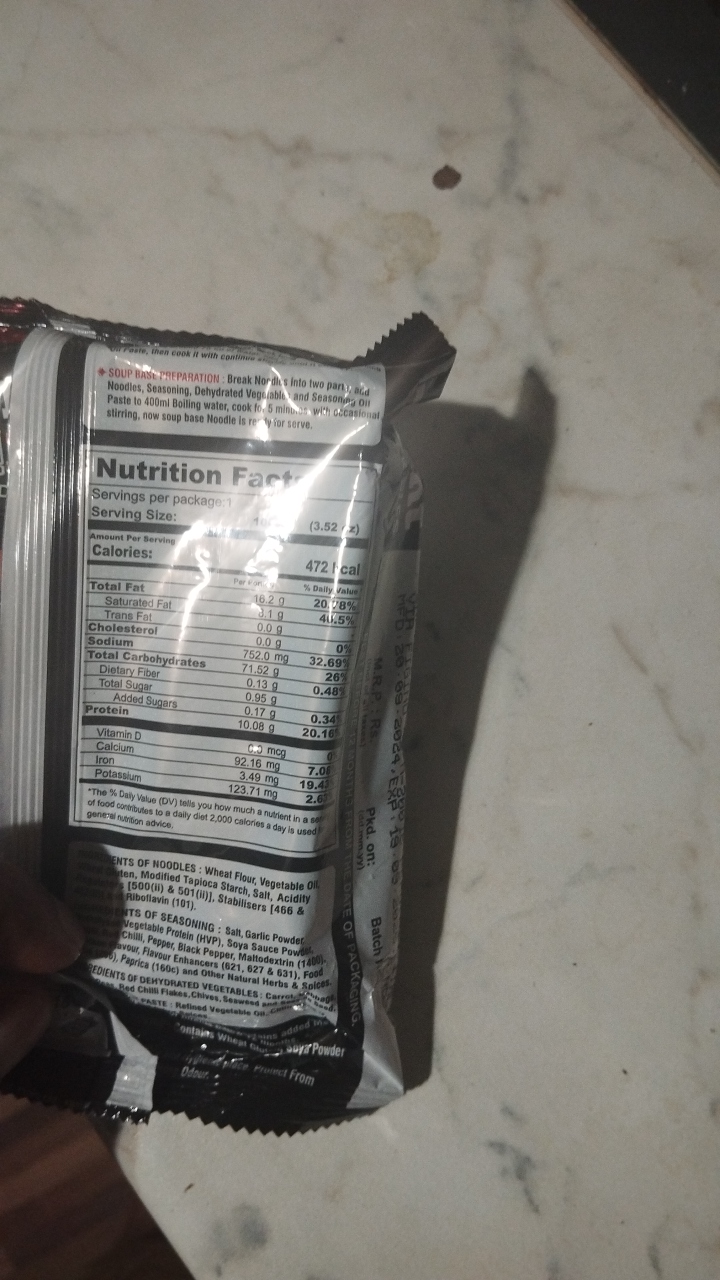
Barcode: 8906088860401
noodles
HALAL
📝 Reason: All ingredients listed are generally considered Halal as they do not contain any Haram substances or derivatives. The absence of meat ingredients and Haram E-codes ensures the product’s compliance with Halal dietary laws.
🏷️ Category: Noodles
📄 Certificates: None
Ingredients:
Details
Understanding the Halal Status of Noodles
If you’re wondering whether noodles are Halal, you have landed on the right page. Noodles are a popular food item worldwide and can be found in various types and forms. In this article, we will explore the Halal status of noodles, taking into account their ingredients and relevant E-numbers.
Ingredients in Noodles
Here is a breakdown of the ingredients found in noodles and their Halal status:
- Wheat Flour – Generally considered Halal. It is the primary ingredient in noodles and doesn’t contain any Haram derivatives.
- Vegetable Oil – Also considered Halal. It is commonly used for processing noodles and is derived from plants.
- Modified Tapioca Starch – Generally considered Halal. It is a thickening agent and is safe for consumption.
- Salt – A basic mineral and considered Halal.
- Acidity – Commonly used in foods, its Halal status is generally positive.
- Stabilisers – Often used in food production, these are generally regarded as Halal.
- Riboflavin – This vitamin is naturally occurring and is Halal safe.
- Garlic Powder – An ingredient that adds flavor, this is considered Halal.
- Vegetable Protein – Derived from plants, therefore Halal.
- Soya Sauce Powder – As long as it is made from Halal ingredients, this is generally acceptable.
- Chilli – Normal spice and Halal.
- Pepper & Black Pepper – Both are Halal spices.
- Maltodextrin – Typically derived from starch, Halal.
- Flavour & Flavour Enhancers – The Halal status can depend on their sourcing, but they are typically acceptable without meat derivatives.
- Food – This term is generic but should be checked for specific contexts.
- Paprika, Carrots, Seaweed, Chilli Flakes, Refined Vegetable Oil – All these ingredients are generally considered Halal.
The Significance of E-numbers
Many consumers today are becoming increasingly aware of food additives marked by E-numbers. In our analysis, none of the ingredients in noodles contain known Haram E-codes. This further supports the claim that noodles can be Halal friendly for consumers.
Conclusion
With all ingredients analyzed and considered, we conclude that noodles indeed hold a Halal status. They are free of meat by-products and Haram substances. The Halal certification is determined by the absence of any complicating factors, such as cross-contamination with non-Halal products. The safe bet for consumers is to refer to specific manufacturing processes or certifications if purchasing pre-packaged noodles. Ensure to read labels for any certifications or indications of Halal compliance. In summary, if you’re looking for noodles that comply with Halal standards, you can rest assured that the product is generally Halal.
